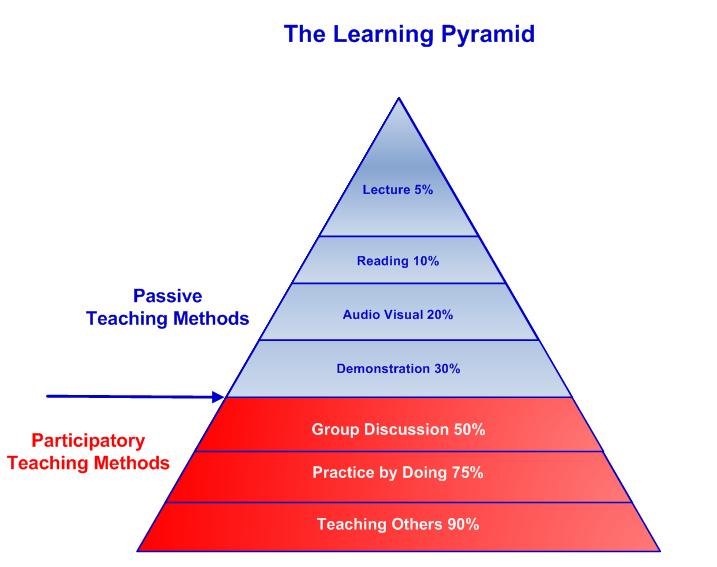Recording information
Created: November 8, 2015 / Updated: December 21, 2025 / Status: in progress / Readability: technical / 4 min read (~676 words)
- Information is not the same as data. The same information can be expressed (coded) using more or less data
- Which channel has the best retention rate?
- What is the rate of image creation within the mind?
- Given that the brain currently has a given architecture, would it be able to adapt to higher bit rate of data/information?
- Handwriting: 30 wpm 1 (43k/day)
- Sign: About half the rate of speech, thus 50-62 wpm 2
- Typing: 50-80 wpm 1 3 (72-115k/day)
- Speech: 100-125 wpm (144-180k/day) for slide presentations, 150-160 wpm (216-230k/day) for audiobooks 1
- Listening: 100-125 wpm for slide presentations, 150-160 wpm for audiobooks 1
- Audio/Video/Speech generator can be speed up while allowing us to still retain comprehension, however it does not appear that any metric for this is available
- Reading: 228±30 wpm (in English) 1
| Medium | Per minute | Per day | Per year | Description |
|---|---|---|---|---|
| Text | 1 KB | 1.5 MB | 512 MB | At the same rate the average human can read, 230 words per minute or around 1000 characters per minute |
| Audio (voice only) | 60-480 KB | 84-675 MB | 30-241 GB | 300-3400 Hz, 8-64 kbps |
| Audio (audible) | 1-3 MB | 1-4 GB | 505-1261 GB | 20-20000 Hz, up to 40 kHz, 128-320 kbps |
| Video | 23-45 MB | 32-65 GB | 12-24 TB | 1080p@30fps, 3-6 Mbps |
| Taste | ? | ? | ? | - |
| Smell | ? | ? | ? | - |
| Heat | ? | ? | ? | - |
| Pressure | ? | ? | ? | - |
You remember approximately 30 percent of what you see.
You remember approximately 50 percent of what you hear and see together.
You remember approximately 70 percent of what you say (if you think as you are saying it).
You remember approximately 90 percent of what you do.4
Source: Darthmouth College
We retain approximately 10 percent of what we see;
30 to 40 percent of what we see and hear;
and 90 percent of what we see, hear, and do.
We all have the capability to learn via all three styles, but are usually dominate in one. 5
Source: National Highway Institute
| Medium |
|---|
| Text |
| Audio (voice only) |
| Audio (audible) |
| Video |
| Taste |
| Smell |
| Heat |
| Pressure |
- I am not aware of any research which evaluates memory retention based on the medium through which the information was transmitted, however it would be interesting to have results on this question
- For some form of memory, it is possible to evaluate with various methods the accuracy of the recall
- For instance, for text, we could evaluate the number of numbers or words correctly remembered. We could also ask a person to read a given amount of text and to summarize it, which would be another form of recall (hearing to speech)
- In the same manner, an experimented could say a list of numbers or words and ask the person to recall those words (hearing to speech)
- We can show a picture and ask the subject to redraw the picture (image to speech)
- Some other forms of memory are much harder to evaluate because we have less vocabulary to describe them, more specifically
- We can show a picture and ask the subject to describe the picture (image to motor commands)
- In all cases it is important to attempt to dissociate recalling from the part where execution happens (telling the experimenter about the memory either through spoken words, written words, drawings or motor commands for instance)
- You can recognize something, yet not recall it (recognize parts of a whole)
- When studying a subject through a book, it's easy to recognize sections you've read through, however it is much more difficult to recall what the section contains, word for word
-
http://lcn.salk.edu/publications/SOL/SOL%20-%208%20Rate%20of%20Speech%20and%20Sign.pdf ↩
-
http://www.dartmouth.edu/~acskills/docs/study_actively.doc ↩
-
https://www.nhi.fhwa.dot.gov/downloads/freebies/172/PR%20Pre-course%20Reading%20Assignment.pdf ↩
-
http://thepeakperformancecenter.com/educational-learning/learning/principles-of-learning/learning-pyramid/ ↩
